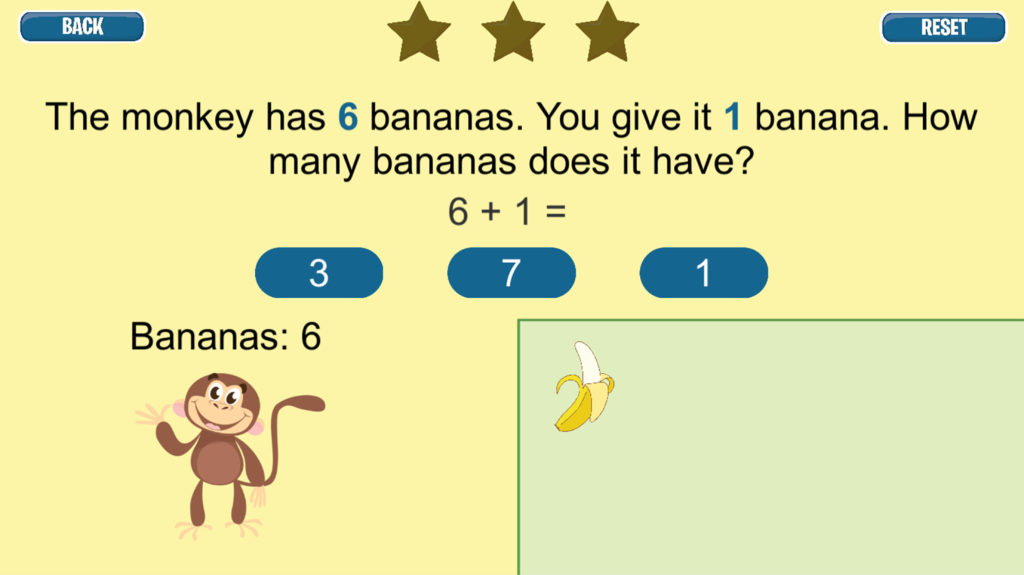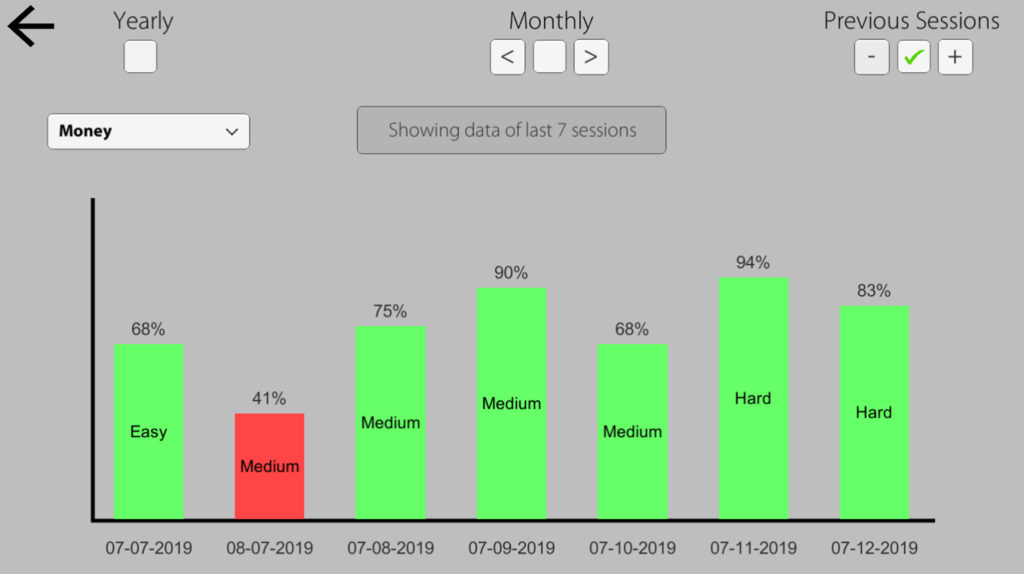Students with intellectual disabilities tend to experience difficulties when it comes to problem solving and abstract reasoning [1]. They also tend to experience anxiety when presented with problems that they cannot solve [2]. For these reasons, numerous students with mild to borderline intellectual disabilities complete their schooling without mastering these crucial basic skills [3].
Through incrementally developed prototypes, driven by the feedback acquired from multiple interviews with a number of Learning Support Educators (LSEs), a mathematical digital- educational game was developed based on the LSEs’ current teaching methods. As each new incremental prototype was developed, it was distributed to all participating LSEs, who were given adequate time to perform usability tests with their students. The expert feedback acquired from the follow-up interviews with the LSEs was then used to drive the development of the next incremental prototype.
The focus of this study was to evaluate whether a digital- educational game can aid LSEs in teaching basic arithmetic to children with intellectual disabilities. Feedback from participating LSEs after using the digital-educational game with their students was extremely positive, since the game substantially increased engagement, attention and motivation among students, and this made it easier for LSEs to explain concepts discussed in class. Also, the digital-educational game provided progress tracking for individual students, which was deemed extremely useful by the LSEs since manual progress tracking is usually very time consuming.


.
References
[1] M. Prendergast, N. A. Spassiani, and J. Roche, “Developing a Mathematics Module for Students with Intellectual Disability in Higher Education,” International Journal of Higher Education, vol. 6, no. 3, p. 169, 2017.
[2] W. Admiraal, J. Huizenga, S. Akkerman, and G. Ten Dam, “The concept of flow in collaborative game-based learning,” Computers in Human Behaviour, vol. 27, no. 3, pp. 1185–1194, 2011. [3] B. R. J. Jansen, E. De Lange, and M. J. Van der Molen, “Math practice and its influence on math skills and executive functions in adolescents with mild to borderline intellectual disability,” Research in Developmental Disabilities, vol. 34, no. 5, pp. 1815–1824, 2013
Student: Daryl Tabone
Supervisor: Dr Peter Albert Xuereb
Course: B.Sc. IT (Hons.) Software Development
